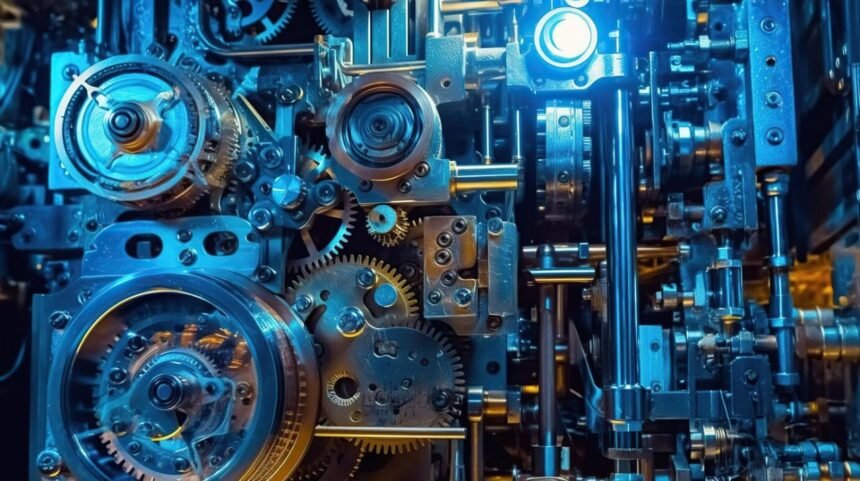Industrial automation is a cornerstone of modern manufacturing and production processes. Ensuring that these systems function efficiently and reliably hinges on the quality and suitability of the components used. Selecting the right industrial automation parts supplier is, therefore, a crucial task that can significantly impact the performance and longevity of your operations. This guide provides a comprehensive approach to making an informed choice.
Understanding Your Requirements
Before embarking on the search for a supplier, it is imperative to have a clear understanding of your specific needs. Assess the types of automation parts required for your operations, including sensors, controllers, actuators, and other essential components. Each part has unique specifications and performance standards that must align with your operational demands. For instance, sensors must be compatible with the system’s software, while actuators need to match the required force and speed parameters. Documenting these requirements in detail helps in communicating clearly with potential suppliers, ensuring they understand exactly what you need.
Additionally, consider the volume of parts needed. Some suppliers specialise in bulk orders and may offer discounts for larger quantities, while others cater to smaller, more customised orders. It’s also worth evaluating whether you need parts that comply with particular industry standards or certifications, such as ISO or CE marks.
These certifications can be crucial for ensuring the parts meet regulatory requirements and industry standards. Clear documentation of your requirements will streamline the selection process and ensure you find a supplier like IDE Electronics International that can meet your exact needs, avoiding potential mismatches or quality issues.
Evaluating Supplier Reputation
The reputation of a supplier is a strong indicator of their reliability and the quality of their products. Start by researching potential suppliers online. Look for reviews and testimonials from other businesses that have used their services. Websites dedicated to industry reviews can provide unbiased opinions and ratings.
Engaging in industry forums and networking with peers can also offer valuable insights. Colleagues in similar industries might have recommendations based on their experiences. Moreover, consider reaching out directly to suppliers for references. A reputable supplier should be willing to provide contact information for satisfied customers. These steps will help you gauge the credibility and reliability of potential suppliers, ensuring you partner with a trusted source.
Assessing Quality Control And Compliance
Quality control is a non-negotiable aspect of industrial automation parts. Substandard components can lead to system failures, production downtime, and increased maintenance costs. Investigate the quality assurance practices of each supplier. Inquire about their manufacturing processes, quality control measures, and any certifications they hold.
Suppliers adhering to international standards, such as ISO certifications, are often more reliable. These certifications indicate a commitment to maintaining high-quality standards and continuous improvement. Additionally, consider whether the supplier’s products comply with industry-specific regulations. Compliance ensures that the parts will perform as expected and adhere to safety and operational standards.
Considering Cost And Value
While cost is a significant factor in any purchasing decision, it should not be the sole determinant. Evaluate the overall value offered by the supplier. This includes not only the price of the parts but also factors such as delivery times, warranty terms, and after-sales support.
Cheaper options might seem attractive initially, but they can lead to higher costs in the long run due to poor quality and frequent replacements. Conversely, a slightly higher initial investment in quality parts can result in better performance, longer lifespan, and reduced maintenance costs. Consider the total cost of ownership when comparing suppliers, and look for those offering a good balance between cost and value.
Ensuring Technical Support And Service
Technical support and service are critical components of a successful supplier relationship. In the event of issues or failures, having access to prompt and effective support can minimise downtime and prevent extended disruptions to your operations. Assess the level of technical support offered by potential suppliers. This includes availability, response times, and the expertise of their support staff.
Suppliers that provide comprehensive service packages, including installation assistance, troubleshooting, and maintenance support, can significantly enhance your operational efficiency. Additionally, consider whether the supplier offers training for your staff. Properly trained personnel can operate and maintain the equipment more effectively, further ensuring smooth operations.
Conclusion
Choosing the right industrial automation parts supplier is a multifaceted decision that requires careful consideration of several factors. Understanding your specific requirements, evaluating supplier reputation, assessing quality control and compliance, considering cost and value, and ensuring robust technical support are all crucial steps in the selection process. By taking a comprehensive approach, you can find a supplier that not only meets your immediate needs but also supports your long-term operational success. Investing the time and effort in this decision will pay dividends in the form of improved efficiency, reliability, and overall performance of your industrial automation systems.
Also Read: Rejuvenate and Firm: Exploring Skin Tightening Treatments



